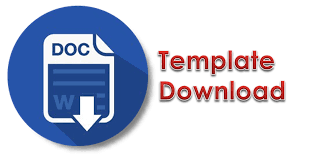Revisiting Newmark’s Theory of Translation: To What Extent Is It Appropriate?
Abstract
In the twentieth century, when the study of cultural anthropology suggested that linguistic barriers were insuperable and that language was entirely the product of culture, the translation must be as literal as possible. This resulted in confusion among translators when translating a text, not until they were illuminated by Peter Newmark’s "Approaches to Translation". Newmark's idea has been widely used in translator training courses and combines a wealth of practical examples of linguistic theories of meaning with practical applications for translation. However, in this twenty-first century where translation becomes more complex (e.g. political agenda), Newmark’s theory seems to have a deficiency as it does not pay attention to the role of the translators. Therefore, the translation theory needs to be broadened to take into account the value-driven of the human yardstick framework. The present paper aims to provide a critical evaluation of Newmark's theory of translation and to suggest a new theory. It is concluded that Newmark's theory lacks some important criteria to really reach appropriate translation in some cases. Finally, the “Appropriateness Theory” proposed by Woesler (2021, 2) comes to perfect the previous theories and to meet the demands of this twenty-first century translation.
References
Berman, Antoine. (2012). "La traduction comme épreuve de l’étranger". Texte 4 (1985): 67–81, translated by L. Venuti as "Translation and the trials of the foreign", in L. Venuti (ed.) (2012), 240–53.
Dukmak, W. (2012). "The Treatment of Cultural Items in the Translation of Children's Literature: The Case of Harry Potter in Arabic". Ph.D. thesis. University of Leeds. United Kingdom.
Inghilleri, Moira., and Maier, Carol. (2001). "Ethics" in Routledge Encyclopedia of Translation Studies. New York and London: Routledge.
Larkosh, Christopher. (2004). "Levinas, Latin American Thought and the Futures of Translational Ethics". TTR: traduction, terminology, rédaction 17 (2): 27-44.
Moratto, Riccardo., and Woesler, Martin. (2021). New Frontiers in Translation Studies. Singapore: Springer.
Munday, Jeremy. (2016). Introducing Translation Studies: Theories and Application (4th ed.). London and New York: Routledge.
Nida, Eugene, A. (1964). Toward a Science of Translating. Leiden: E. J. Brill.
Newmark, Peter. (1977). "Communicative and Semantic Translation". Babel 23 (4): 163-180. Fédération Internationale des Traducteurs (FIT) Revue Babel.
Newmark, Peter. (1981). Approaches to Translation. Oxford and New York: Pergamon, republished 2001 by Shanghai Foreign Language Education Press.
Newmark, Peter. (1988). A Textbook of Translation. New York and London: Prentice Hall.
Newmark, Peter. (1997). "The Customer as King". Current Issues in Language and Society 4 (1): 75–77.
Newmark, Peter. (2009). The Linguistic and Communicative Stages in Translation Theory. in J. Munday (ed.). 20–35.
Panou, Despoina. (2013). "Equivalence in Translation Theories: A Critical Evaluation". Theory and Practice in Language Studies 3 (1): 1-6. Academy Publisher.
Pym, Anthony. (2014). Exploring Translation Theories (2nd ed.). London and New York: Routledge.
Qian, Hu. (1993). "On the implausibility of equivalent response (Part IV)". Meta 38 (3): 449–67. http://www.erudit.org/revue/meta/1993/v38/n3/003147ar.pdf.
Venuti, Lawrence. (1995). The Translator's Invisibility: A History of Translation. London and New York: Routledge.
Venuti, Lawrence. (1998). The Scandals of Translation: Towards an Ethics of Difference. London and New York: Routledge.
Venuti, Lawrence. (2008). The Translator's Invisibility: A History of Translation (2nd ed.). London and New York: Routledge.
Woesler, Martin. (2021) Ending the "100‐schools" dispute between translation theories by integrating them and measuring the "appropriateness". International Symposium on Translation Communication 2021. Hunan: Hunan Normal University.
Copyright (c) 2023 Asep Budiman, Yasinta Wulandari, Naeli Rosyidah

This work is licensed under a Creative Commons Attribution 4.0 International License.







